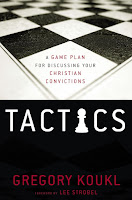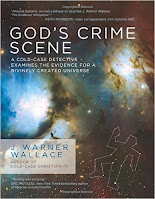Introduction
I am not a musician and do not sing (well), but like most people, I do love music. Both science and music have been long-time fascinations of mine, and when a certain book was spotted, the urge to buy it could not be resisted. "
This is Your Brain on Music: The Science of a Human Obsession" by Daniel J. Levitin is that book. It was a bit hefty of a book for me at the time I purchased it, but the idea of seeing the awesome connections between music and science was worth the risk. My usual style of
book reviews begins with a chapter-by-chapter summary of the book and concludes with my thoughts. However, I have decided to invert this particular review to place my thoughts before the chapter-by-chapter summary because it may not be so obvious as to the reason why such a book would appear on a blog about defending the truth of the Christian worldview. Here are my thoughts followed by the chapter-by-chapter summary:
Reviewer's Thoughts
This book was an incredible read. The combination and connection of an art and science was quite thrilling and fascinating. It was extremely thought-provoking yet not difficult to understand. From the perspective of a Christian, this book is a "must-get". In our evangelistic efforts to defend the existence of God, we often like to use the argument from beauty- specifically appealing to music. The content in this book, though, can be used to demonstrate the meticulous design that was required for music to not only be possible but to be appreciated as "beautiful" by humans. Every system that we know of with this level of intricacy and this many interdependent parts are the work of intelligent engineers. And the systems that add beauty to those engineered system are the work of the most talented architects. Therefore, it is reasonable
also to believe that the entire system that is responsible for music, from the physics responsible for sound creation to the auditory system's ability to receive it, is the work of an engineer- one who, in order to create physics and the universe must transcend both. This transcendent engineer is also responsible for the portion of the system that appreciates music for its beauty and emotional connections (the brain and mind); therefore, it is also reasonable to conclude that this transcendent
architect is also a personal being who desires a relationship with those He endowed with this ability. The only option for such a being is the God of the Bible. It is only in the Christian God that all of the scientific data provided by Levitin can find a reasonable and consistent explanation.
If you are an apologist and musician, this book will be "mind-candy" to you. It will provide you with a way to appeal to science when defending God's existence to other musicians. If you are just an apologist, it will provide more teleological evidence for God's existence that can be appealed to. I cannot recommend "
This is Your Brain On Music" highly enough.
Recommended Books for Further Reading:
Who Was Adam: A Creation Model Approach to the Origin of Humanity
Agents Under Fire: Materialism and the Rationality of Science
Where the Conflict Reality Lies: Science, Religion, and Naturalism
Chapter-by-Chapter Summary:
Book Introduction
Levitin introduces his book by telling the reader of his fascination with music, psychology, and neurology. He addresses anticipated cringing from musicians who may believe that the art should not be reduced to dry, mechanistic science. He shows how artists and scientists hold many things in common, and how their respective disciplines can be used to inform the other.




















